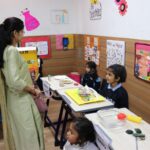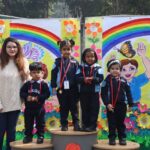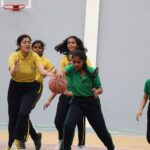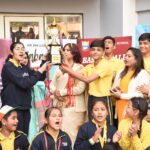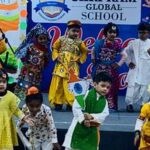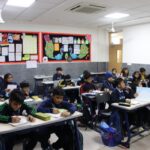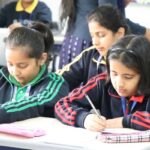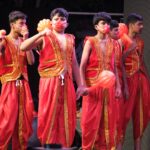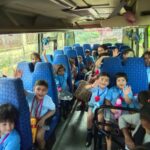Curriculum
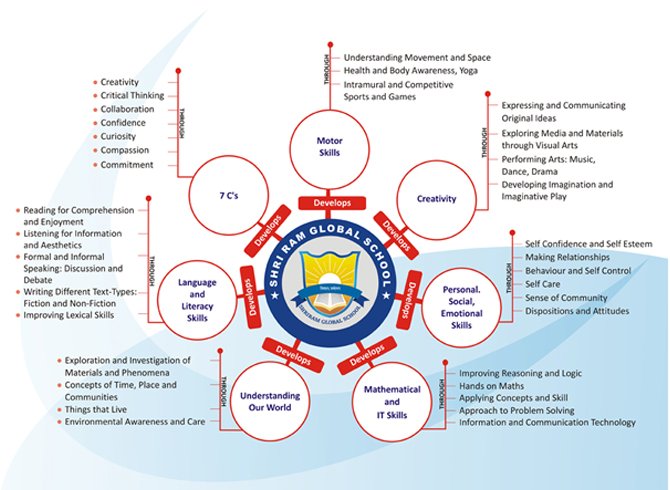
The Shri Ram Global curriculum has been developed by experts to encompass the NCERT objectives through enlightened global practices. We believe that the play-centric model is key in a young child’s learning. Spontaneous play is a natural way of learning for young children; as it provides a wide range and real depth of learning in various development areas: physical, emotional, social, and intellectual. We also emphasize learning through spontaneous investigation (observation, experimentation, and inquiry). Children are natural scientists. They devote their endless amount of energy to learning all aspects of the culture they are born into- including language, stories, music, and literature; they investigate with all their senses and emerging skills what people mean, when things are appropriate and when they are not, where things come from, what they are for, how they are made, and how adults and peers respond to them. They try to make sense of common objects by prying into them, taking them apart, and manipulating them in a variety of ways. Appropriate curriculum and teaching methods at the Shri Ram Global includes activities and encouragement for kindergartners in these quests and feature the importance of individual children’s feelings and emotions in group settings. Shri Ram Global has a curriculum that involves a variety and balance of activities that can be provided in the context of project work. Children undertake projects in which they investigate a real event or object. In the course of such projects, the children strengthen literacy and numeracy skills and also speaking and listening skills and acquire new words as they share their findings with others, reflecting our emphasis on developing communication skills.
The Curriculum provides activities that include:-
- Integrated topic studies, rather than whole-group instruction in isolated skills.
- Opportunities for children to learn by observing and experimenting with real objects.
- A balance of child – and teacher-initiated activities.
- Opportunities for spontaneous play and teacher-facilitated activities.
- Group projects in which cooperation can occur naturall.y
- A range of activities requiring the use of large and small muscles.
- Exposure to good literature and music of the children’s own cultures and of other cultures represented in the class.
- Authentic assessment of each child’s developmental progress.
- Opportunities for children with diverse backgrounds and developmental levels to participate in whole-group activities.
- Time for individuals or small groups of children to meet with the teacher for specific help in acquiring basic reading, writing, mathematical, and other skills as needed.

